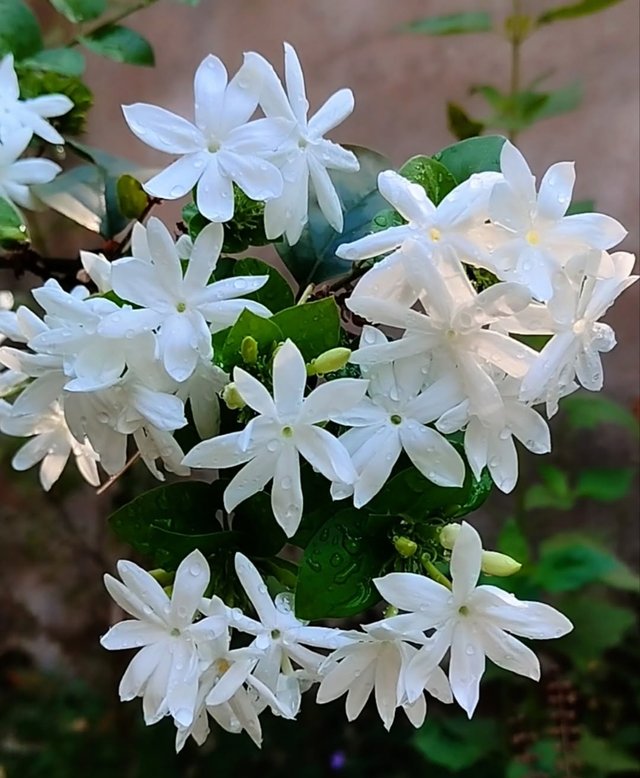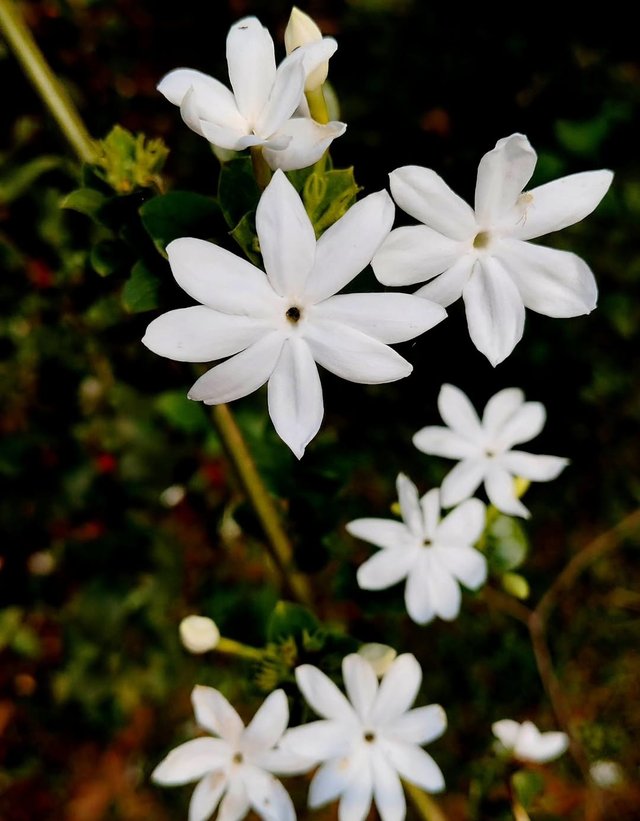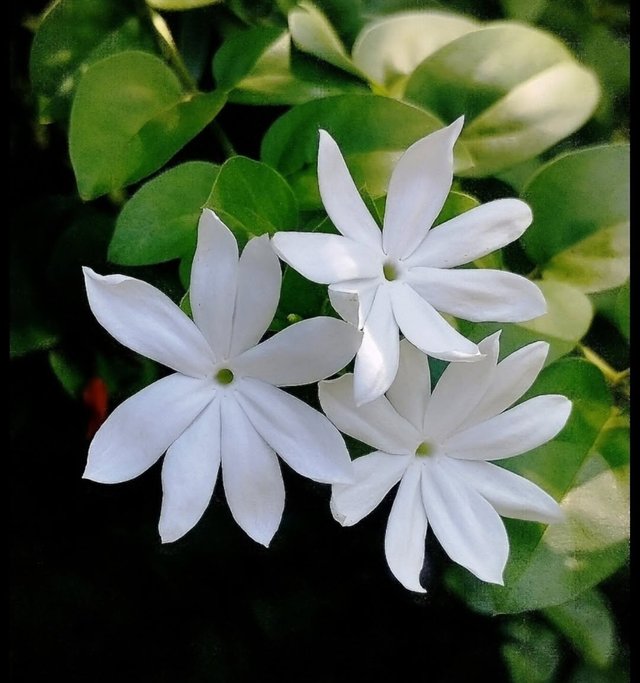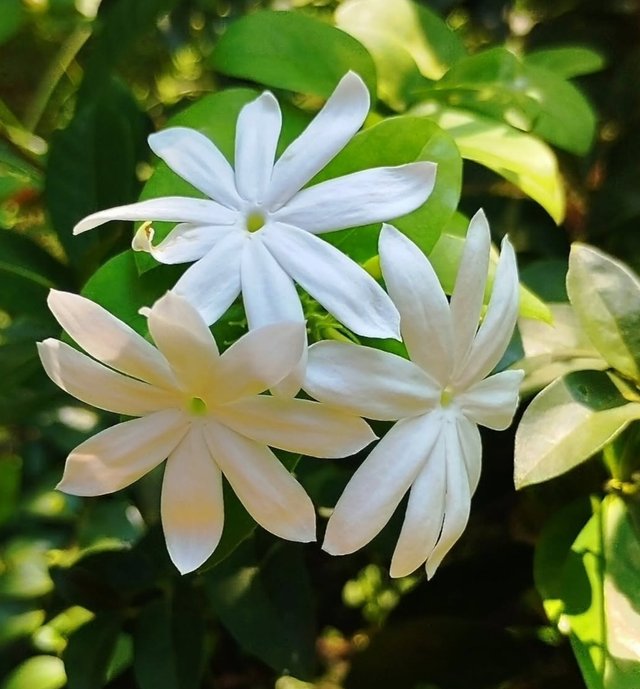White Colour Arabian Jasmine Flower
Arabian Jasmine is one of the most beloved flowering plants in the world, admired not only for its enchanting fragrance but also for its cultural, spiritual, and medicinal significance. Native to Southeast Asia, this evergreen shrub has found its way into gardens and homes across tropical and subtropical regions, where it is cherished as much for its beauty as for its uses in daily life.
Botanical Overview
Arabian jasmine belongs to the olive family. It is a woody, twining shrub or vine that can grow up to 2–3 meters tall when supported, though it can also be pruned and trained as a compact bush. Its leaves are simple, ovate, and glossy green, providing a rich backdrop for its stunning blossoms. The flowers are usually small, waxy, and pure white, blooming either singly or in clusters. What makes them most special is their intoxicating fragrance, which is especially strong during the evening and night.
Cultural Significance
Few flowers carry as much cultural weight as Arabian jasmine. In India, it is known as Mogra and is often woven into garlands, hair adornments, and wedding decorations. In the Philippines, it is called Sampaguita and has been declared the national flower, symbolizing purity, simplicity, and humility. In Indonesia, it is used in religious ceremonies, particularly weddings, where it represents sacredness and sincerity. Similarly, in many Middle Eastern and South Asian households, the fragrance of Arabian jasmine is deeply tied to tradition, hospitality, and devotion.
Symbolism
Across cultures, Arabian jasmine is associated with love, beauty, and purity. Its white blossoms symbolize innocence and spiritual devotion. In folklore, the flower is often linked to eternal love and divine blessings, making it a popular choice for offerings in temples and shrines.
Uses and Applications
Perfumery: Arabian jasmine is one of the most important raw materials in the perfume industry. Its essential oil, known as “jasmine absolute,” is highly valued for its deep, sweet, and seductive aroma.
Religious and Ceremonial Use: The flowers are commonly used in garlands for deities, weddings, and festivals. In many Asian countries, offering Arabian jasmine is seen as a gesture of respect and reverence.
Medicinal Uses: Traditional medicine values Arabian jasmine for its therapeutic properties. Herbalists use it to treat headaches, anxiety, coughs, and skin ailments. Its calming aroma is also believed to relieve stress and promote relaxation.
| Device | cannon eos 700D |
|---|---|
| Lens | 55-250 zoom leans |
| Location | Bangladesh |




